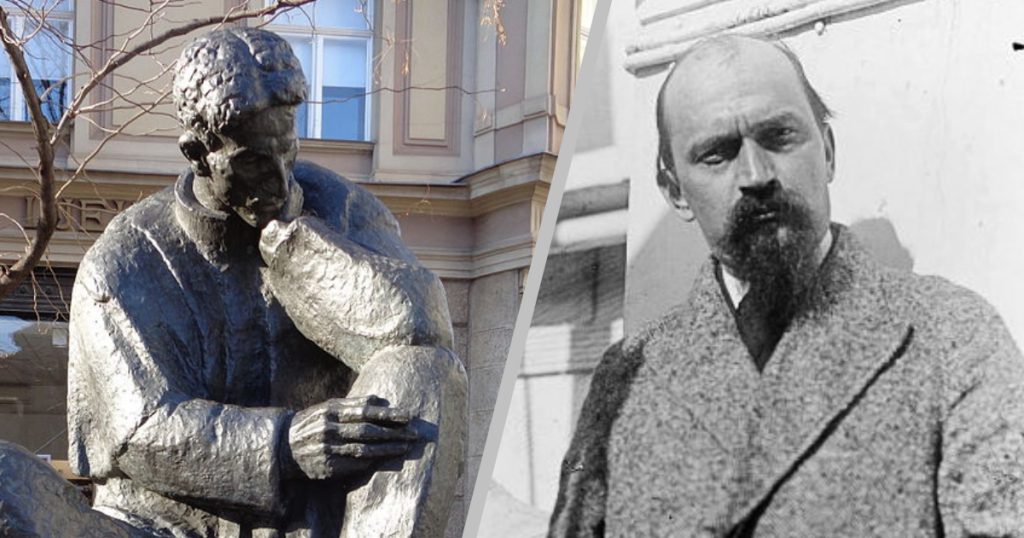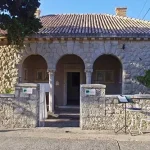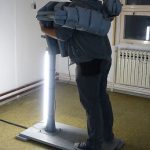Ivan Meštrović, a master sculptor and one of the most renowned Croatian artists of all time, died on this day in 1962. Having gained United States citizenship a few years earlier, Meštrović passed away in the US, after an illustrious international career and numerous accolades won for his exceptional artistic work.
He was one of the rare Croatian artists to gain international recognition during his lifetime: he lived, worked, taught, and exhibited his art in Split, Paris, Rome, Belgrade, Zagreb, London, Geneva, Cannes, and all over the US. He was the first living artist to get a solo exhibition at the Metropolitan Museum in New York (1947).
Meštrović was the genius mind behind some of the most recognisable landmarks and monuments in Croatia. The Well of Life was installed in front of the Croatian National Theatre in Zagreb in 1912:
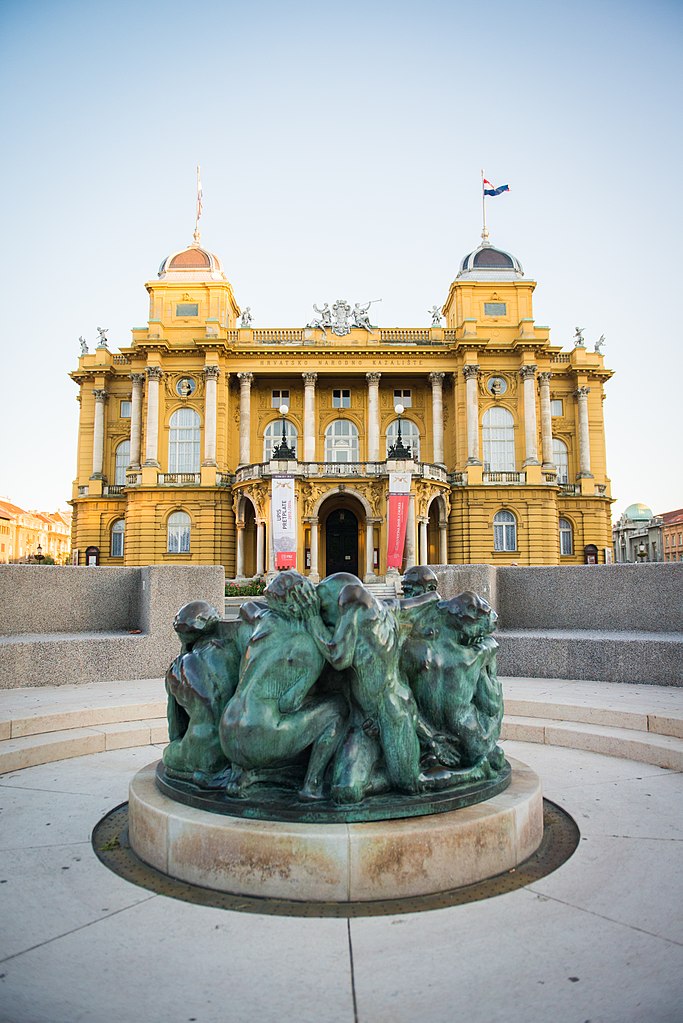
Another iconic landmark in Zagreb, the Home of Croatian Artists also known as Džamija (The Mosque), was designed by Meštrović and completed in 1938 – hence its other nickname, the Meštrović pavilion:
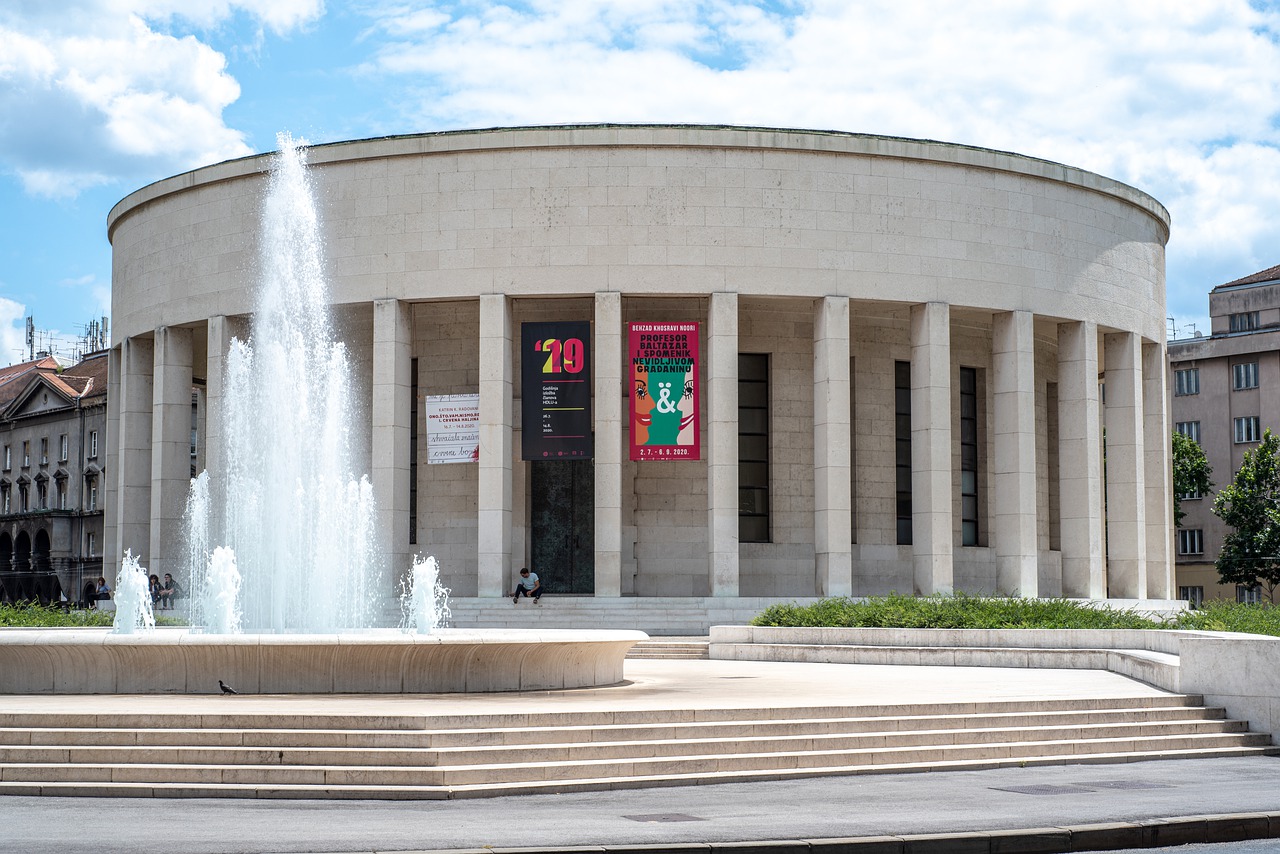
The gigantic statue of Gregory of Nin (Grgur Ninski) was initially installed at the Peristil in Split and later moved to its present location in front of the Golden Gate, where tourists in passing rub the saint’s big toe for luck.
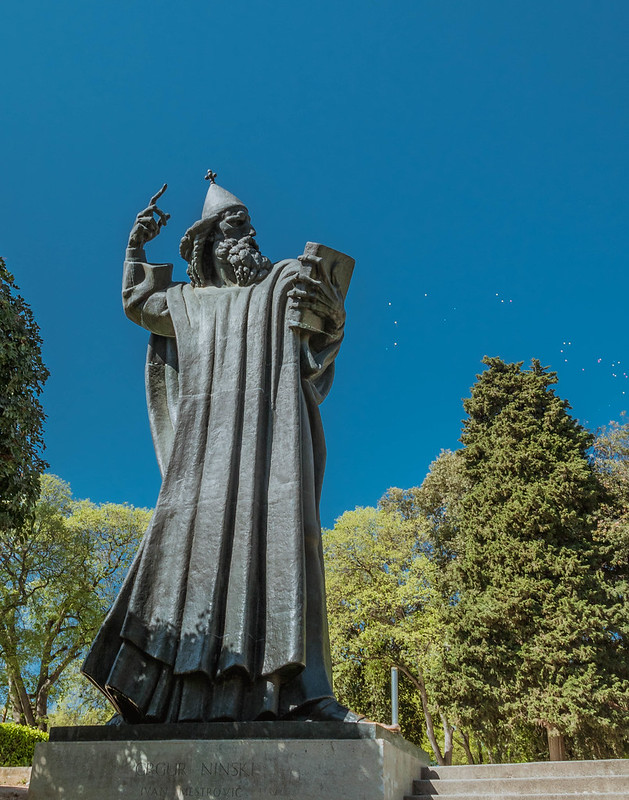
Photo: Statue of Gregorius of Nin in Split, Croatia by Marco Verch under Creative Commons 2.0
A lesser known fact about the master artist is that he was friends with another famous figure from these parts – the great inventor and scientist Nikola Tesla.
Tesla and Meštrović met in New York in 1924, where Meštrović had a solo exhibition at the Brooklyn Museum. Knowing that Tesla was also residing in New York at the time, the artist reached out with a letter expressing his wish to meet, sent from Hotel Gotham on December 13th:
Dear Mr Tesla, one of my main wishes in coming here was to meet you, wrote Meštrović.
Tesla wrote back from Hotel Marguery two days later:
Dear and great artist! I was happy to receive your letter and will be even more glad to meet you in person, as this has been a fervent wish of mine for many years now, replied Tesla with enthusiasm and proposed a meetup time. This was the beginning of a long friendship between the two men, each a master in his own field.
***
In the years that followed, Tesla saw other exhibitions of Meštrović’s work in the US, and wrote to the artist to express his admiration after an exhibition in Chicago in 1929.
They exchanged Christmas cards as well; they are kept at the Nikola Tesla Museum in Belgrade together with the letters and telegrams.
Another touching letter dates to November 12th, 1929 when Meštrović acted as a middleman for Matica srpska, a distinguished Serbian cultural-scientific institution that wanted to publish a biography of the great inventor.
I don’t know why they chose to go through me: either you weren’t replying to them, or they think you and I are closely acquainted making this a more convenient way [to reach you]. I would ask you to accommodate their request, not for their sake or mine, but for the sake of our nation, and most of all for the sake of younger generations who will see in you the most wonderful example of intellectual and moral virtue, urged Meštrović, going on to suggest that Tesla set a condition for his autobiography to be published in both the Latin and Cyrillic script.
***
In a telegram sent in 1939 Nikola Tesla expressed his wish for Meštrović to sculpt a bust of him.
Artists were known to frequently approach Tesla to ask if he would sit for a portrait, and he turned them all down – save for princess Vilma Lwoff-Parlaghy whose drawing was unfortunately lost. That he would personally reach out to Meštrović to commission a portrait bust only speaks to his respect for the master artist.
This is the telegram:
Sent from NYC to Zagreb on August 18th, 1939
The message reads,
For the sake of our descendants and all Slavic people I wish for a bust of me, made by the miraculous hand of Meštrović, to remain after my death. I don’t yet have cash, but I am willing to do everything to your satisfaction and mine by other means. My face is still smooth, my eyes bright, and I haven’t gone bald. Everyone wishes for your immortal work to be displayed here. Please send a telegram to state your opinion and intent. Your fan, Nikola Tesla.
Imagine having Nikola Tesla for a fan.
Meštrović promptly wrote back from Split:
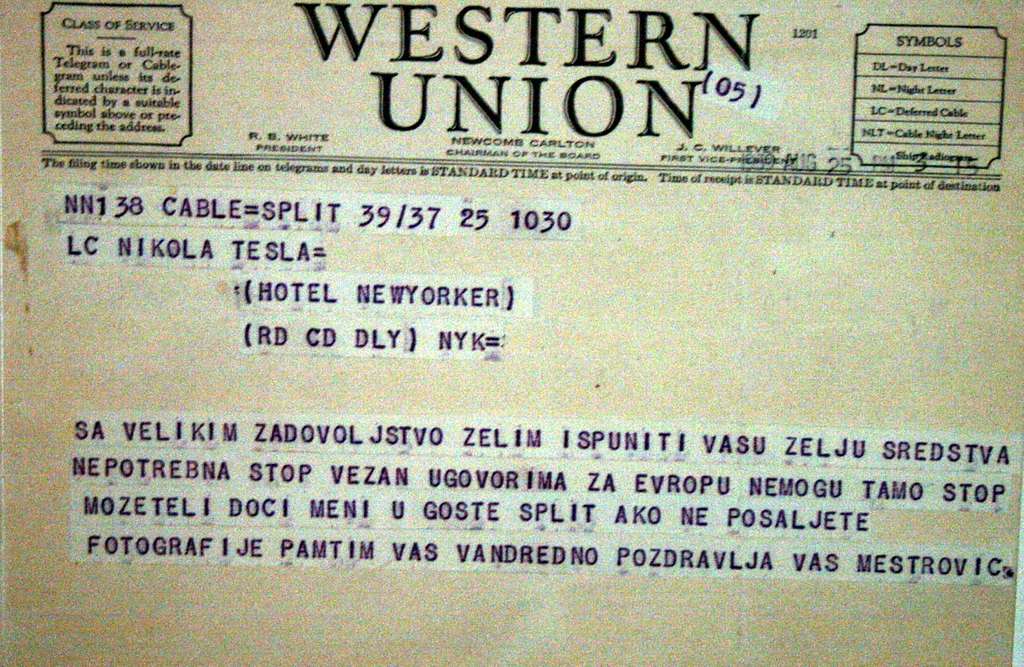
Sent from Split to NYC on August 25th, 1939
The telegram sent to Tesla reads,
It would be my great pleasure to fulfil your wish. Funds not necessary. I am bound by contracts in Europe, I can’t go there [USA]. Can you be my guest in Split, if you can’t, send some photos, I remember you vividly. Greetings from Meštrović.
Tesla was 83 years old at the time and was unable to travel that far, so he didn’t get a chance to pose for Meštrović before he died. The master sculptor kept his word regardless, creating two sculptures of Nikola Tesla in the years that followed.
One is a bronze bust whose original plaster model is displayed at the Croatian Academy of Sciences and Arts in Zagreb; bronze replicas are on display at the Nikola Tesla Museum in Belgrade and the Technical Museum in Vienna.
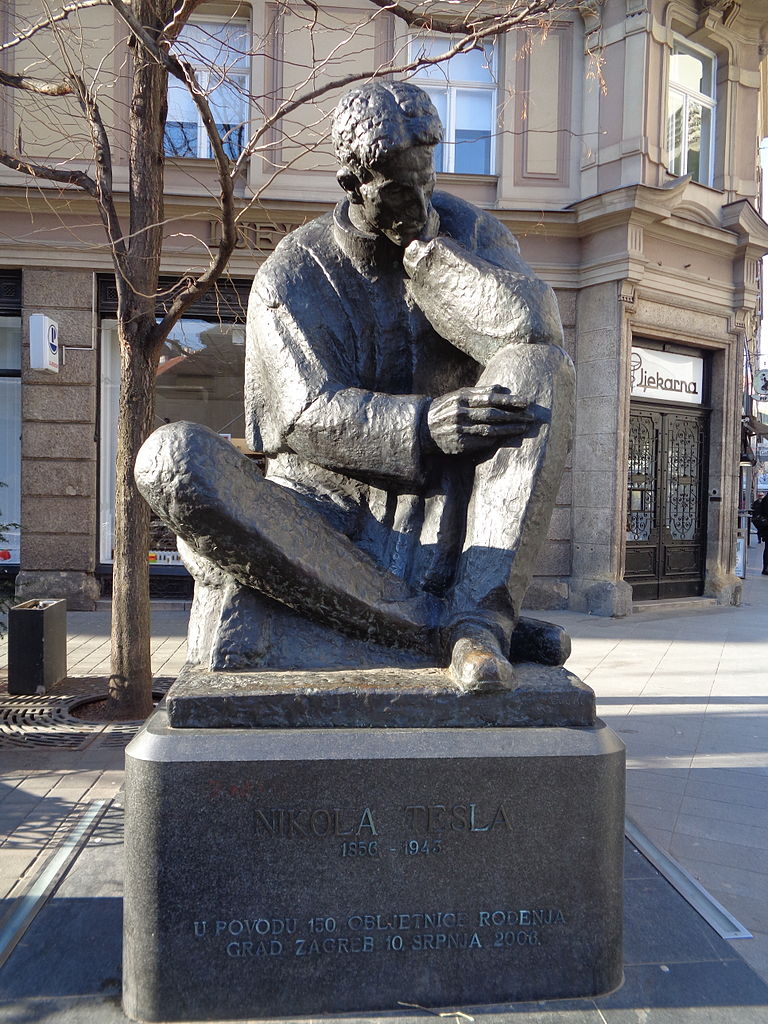
The other is the grand monument of Tesla displayed in Zagreb, shown on the photo above. It was originally installed in front of the Ruđer Bošković Institute in 1956, after Meštrović personally reached out to Croatian physicist Ivan Supek, the founder of the RB Institute. Supek recalled his correspondence with the artist for Jutarnji list/Tanja Rudež.
Meštrović was teaching at the University of Notre Dame in the US at the time, but kept close ties with his homeland. After an earlier sculpture of his, that of Croatian scientist Ruđer Bošković was installed in front of the Institute, he wrote to Supek saying he considered Tesla one of the greatest men from these parts. He said that he would gladly build Tesla a monument and asked for Supek’s opinion – naturally, he agreed, and the work was thus completed and displayed at the institute a year later.
In 2006, the monument was moved to its present location in the city centre, in the street named after Nikola Tesla.
To learn more about Ivan Meštrović and his legacy, visit the pages of Ivan Meštrović Museums / Muzeji Ivana Meštrovića.

